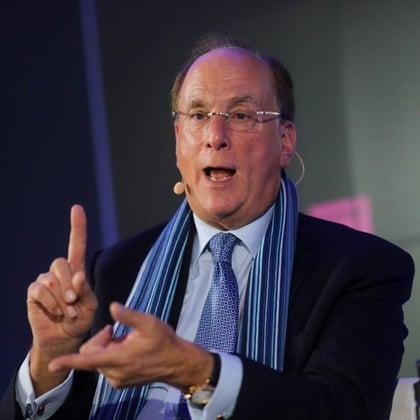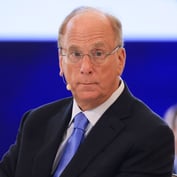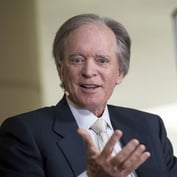What You Need to Know
- Larry Fink just sent his 10th annual letter to fellow CEOs, which reaffirmed his devotion to capitalism and oil, gas and coal companies.
Larry Fink, the chief executive officer of BlackRock Inc., is drawing a lot of ire these days for someone who’s attracting record inflows from investors.
Climate activists accuse him of being full of “hot air,” while pro-fossil-fuel Republicans have started blacklisting BlackRock from their U.S. states. The one thing the two sides have in common is that neither seems to like Fink’s approach to sustainable investing.
Fink, whose firm now manages more than $10 trillion, sent his 10th annual letter to fellow CEOs late Monday. In it, Fink reaffirmed that his devotion to capitalism is what guides him, and that divesting from oil, gas and coal companies isn’t in the cards.
But the 69-year-old also spoke of the inevitable shift away from fossil fuels, and warned companies not to cling on to business models that will leave them the “dodo” of the transition to renewable fuels.
His efforts to strike a balance drew criticism from environmentalists. Lara Cuvelier, a campaigner at nonprofit Reclaim Finance, said Fink is going out “to bat for fossil gas as well as oil.” She and others pointed to the urgency of decarbonization as scientists warn that the world needs to end its fossil-fuel addiction.
The International Energy Agency has made clear there’s no room for continued investment in new oil, gas and coal projects if the temperature increase is to be kept within the critical threshold of 1.5 degrees Celsius.
“In his letter, Larry Fink is trying to be everything to everyone and that isn’t true leadership,” said Casey Harrell, senior strategist at the Sunrise Project, an environmental nonprofit based in Australia.
Ben Cushing, fossil-free finance campaign manager at the Sierra Club, said Fink is full of “hot air” and his annual letter is filled with “vague rhetoric.”
Cushing and other climate activists pointed to BlackRock’s continued investment in some of the world’s biggest emitters of greenhouse-gas emissions, with Reclaim Finance and Urgewald having estimated last year that the asset manager had about $85 billion invested in coal companies.
Officials at BlackRock declined to comment.
BlackRock is also alienating conservative-leaning politicians in fossil fuel-reliant U.S. states. Fink’s letter was published the same day that the treasurer of West Virginia, Republican Riley Moore, said he would order that BlackRock no longer be used as part of the state’s banking transactions.








 January 18, 2022 at 01:34 PM
January 18, 2022 at 01:34 PM














 Copyright © 2024 ALM Global, LLC. All Rights Reserved.
Copyright © 2024 ALM Global, LLC. All Rights Reserved.